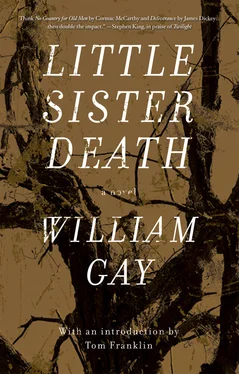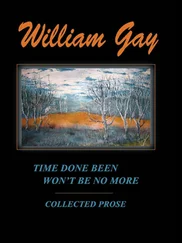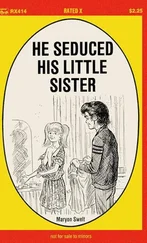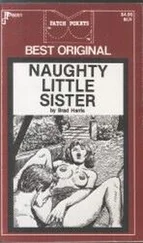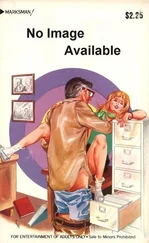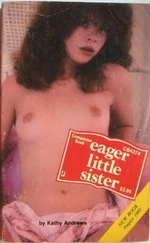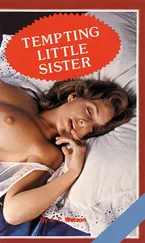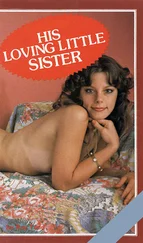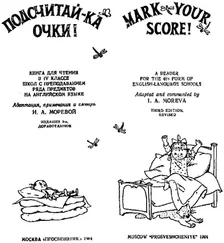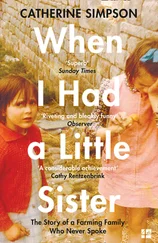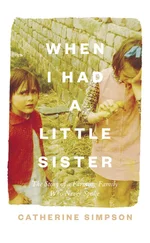And about as shameless as hogs, too. He couldn’t walk around the corner of the house without catching one squatting to pee. It had got to where they didn’t even leap up anywhere adjusting their skirts. They’d just sit there with their bare cheeks shining moonlike and gaze at him stolidly as grazing cows. Or hogs. They’d set across from him or he guessed any man who happened to be there with their skirts hiked up and their legs spraddled out, gleaming like barked-up whiteoak logs.
All except Retha.
Retha was the youngest, and she might have been a changeling the little people left, she was so different. She was so different in fact that Swaw had always felt some vague unspoken unease about her parentage. Perhaps she wasn’t his. He’d almost rather believe she was the only one who was.
Lorene was big and rawboned and she had hands and arms like a man’s. Her voice was masculine, too, a coarse sandpapery whiskey voice, though she didn’t even drink. And all the daughters except Retha seemed to be growing up divested of any mannerisms Swaw had been raised to consider feminine, save the essential and quixotic fact of their sex itself, the moonoriented flowing of their menses.
Lorene and the four daughters had already felt a subtle shifting of their social standing. They had been offered the Beale place. They wouldn’t own a scrap of land, but they would have a strong house and what was left of the Simpson crop. They were still oneeyed, but they were, after all, in the kingdom of the blind. They went to look at the Beale house, touring it with a proprietary air before the Widow Simpson had even begun to think of packing her bags. They came back for three consecutive days, and on the third they saw Widow Simpson’s brothers loading her furniture into two wagons. The Swaws sat on the wagon seat watching from a stand of cypress like distant spectators at a funeral. The horses stirred and the wagons began to roll soundlessly. The mirror of a tilting chifferobe winked at them in the sun like a heliograph.
Swaw was not far behind in the awareness of his altered level at the bottom of society’s sediment. A man long accustomed to walking anywhere he had to go, he suddenly had a fine team of horses at his disposal. There was a rubbertired wagon, not yet two seasons old and with the red paint not even weathered off that was a source of great wonder to Swaw. It was the closest thing to an automobile he’d ever ridden in.
Swaw is a fool about that rubbertired wagon, they said about him in the Snow White Café. He don’t never walk no more. Thinks he’s too good. I bet Swaw won’t go down to the shithouse lessen he hooks up that rubbertired wagon.
Swaw piddled about the place waiting for the corn to mature and for frost and he spent much of the time before the dead fireplace with his feet propped up, slowly turning the pages of the new fall and winter Sears Roebuck catalog. He was making lists in his head of all the things his twenty-five percent of Simpson’s crop would buy. And he wasn’t the only one making lists. A veritable epidemic of list-making ensued.
Swaw was already thinking of next year’s crop. There was a turtleback Hudson Hornet setting in the second row of Toot Grimes’ carlot that made him want an automobile so bad there was something achingly erotic about it. He hungered for the feel of the steering wheel in his hands so deeply that he dreamed about it at night. He imagined driving it down the main street of Beales Gap, his head reared back a little, his eyes looking neither to the right nor to the left. He might even start going to church. Church would be a good place to show off his automobile. He saw himself on the way out, his dark suit crisp with newness, his boiled white shirt blinding in the sun, his black hair slicked down and gleaming pomade. Women turning to look at him speculatively.
All this was before the rats began in the walls. They began first in the girls’ room. He didn’t hear about it for a few days.
What rats? he asked. Rats doin what?
Eatin, they said. Chewin in the walls. Grindin their old teeth together.
Long as they ain’t chewin you, just pay em no mind, he said.
A shriek in the night brought him barefoot down the moonlit hall. The oldest girl was cowering in the corner of the room, half naked, white as a bedsheet. There was a rat in the bed with me, the girl said, shuddering. I could feel it rubbing against my leg.
You get some goddamn clothes on or I’ll be rubbing something against that hind end, Swaw said.
He went through the bedclothes a piece at a time until there was a white mound in the center of the floor. Nothing. With the coal-oil lamp in his hand and his shadow humped and broken against the wall he searched for holes in the baseboard, in the paneling, for anywhere a rat could have gone.
It ain’t nowhere a rat could have went, he said. If it ain’t nowhere it could have gone and it ain’t no rat in here, then you ain’t seen no rat.
I know a rat when I see one, the girl said, and I seen that one jump off the bed. I heard it hit the floor.
Get in that bed and get to sleep, Swaw said. I got work to do in the morning, and I’m damn tired of hearin about rats.
When he was back in bed they began in earnest: a rising ocean of rat sounds, as if a veritable legion of them were steadfastly gnawing the structure into sawdust that would ultimately come sifting over their heads as they lay abed. The sounds spread incrementally, infinitesimally as air, over the floorboards to the footboards of the bed itself and ascending on the wooden bed, steady and unrelenting gnawing over all the bed at once. He lay clutching the covers.
Lorene awoke, drowsily listening until the sounds brought her wide awake and apprehensive.
What on earth?
It sounds like rats, he said, unnecessarily.
She didn’t answer. The noise rose in volume as if controlled by some vituperative force. A faint and far-off squeaking of the young so that Swaw saw in his mind great hordes of soft pink rats clutching their mothers, the elder rats gray and malign, tails like rattail files. Lord God, she said.
It ain’t no rats, Swaw said. You can smell a goddamn gopher rat and there ain’t no smell at all in this house.
The words were no sooner said than a stench of rats saturated the room, unspeakably fetid and overpowering, instantaneous, foul and malefic, just abruptly there , the house stifling with it. Swaw lent gagging over the side of the bed, struggled up.
They ran out choking and retching into the night. The six of them silently aligned before the dark house. It set still and impassive as if it were watching them back.
Swaw cleared his throat and spat. He had the taste of rats in the back of his mouth.
What we need is us a good housecat, the woman said.
Swaw just looked at her. He didn’t say a word.
He was abroad early the next morning. The rubbertired wagon stood before Judge Beale’s house. Swaw sat across from Beale in the oak-paneled study. Beale trimmed his nails with a nail clipper. Swaw talked of rats and watched Beale’s disbelieving face and listened to the nail clippers make little snick-snicks of punctuation.
Swaw spoke of rats at some length. When he had finished Beale just shook his head. There were no rats, Beale said. The house had been fumigated in the spring for bugs and poison and traps set for rats. Besides, there had never been a problem with rats. The place had always been scrupulously kept. Swaw said there was for goddamn sure a problem with rats now, and if Beale thought he was a liar he could drive out there tonight and see for himself. The judge declined. He gave Swaw an enigmatic smile and a chit for the grocery store good for twenty pounds of rat poison.
Swaw came out angry and sweating. He balled the chit up and threw it in a hedgerow bordering Beale’s lawn. He knew in his heart there was no need in hauling in a sack of rat poison.
Читать дальше
